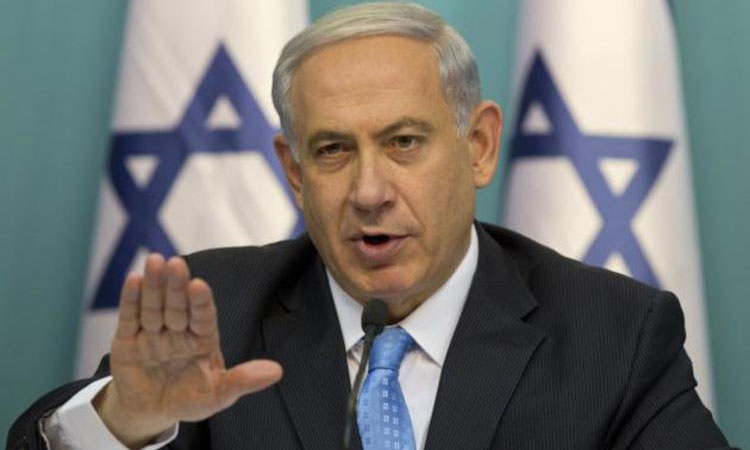Unpacking why Israel’s Netanyahu is wooing Africa

Tom Collins Correspondent
With large sections of the world hostile to Israel, the country’s Prime Minister, Benjamin Netanyahu, is increasingly looking to Africa to fill the void. Last year Netanyahu courted Uganda, Kenya, Rwanda and Ethiopia and this year he has addressed an ECOWAS summit in Liberia.
Previously, Israel’s involvement with Africa has been characterised by a mix of a continued private sector presence along with a frenetic official policy that changes according to how African leaders have reacted to the various Arab-Israeli conflicts.
Netanyahu’s recent bid to woo African leaders marks an entirely new chapter in the Afro-Israeli story. In fact, he is the first Israeli leader to visit West Africa since the 1960s and the first ever non-African leader to address an ECOWAS audience in June.
Speaking at the summit, Netanyahu said: “I saw the resources, diversity, passion, and young entrepreneurs who are building companies. Africans are seizing the future and Israel wants to seize this future with you.”
Offering partnerships in technology, agriculture and security, he came to the summit with Israeli businessmen and met privately with 11 Heads of State after his address.
Such actions show unprecedented policy interest in Africa and have led to the creation of an African-Israeli summit in Togo in October, to discuss multilateral cooperation.
What’s driving Israeli interest in Africa?
Israel’s jumbled approach to Africa has never before shown signs of any specific strategic interest, looking instead to Asia or America to solve Israel’s predicament of being marooned in Arab waters. Undoubtedly, Israel is now looking to expand its portfolio of trading partners and to use Africa as a not-so-distant buffer against the realities of hostile neighbours.
Afro-Israeli trade in the past has predominantly been in the defence and military sector, exporting Israeli arms, experts and techniques to Africa’s most brutal regimes. While security deals will continue to be made, Netanyahu is hoping to diversify the scope of Afro-Israeli trade and to broach other sectors.
For example, an Israeli company Energiya Global has recently committed to building $1 billion worth of solar field projects in Africa, starting with a $20 million solar field next to Liberia’s main airport. In 2015, the company oversaw a solar project in Rwanda which now produces 5 percent of the country’s electricity.
In fact, many Israeli companies are now looking to Africa as a business playground, as the continent circumvents common Israeli business problems like the lack of space and killer bureaucracy.
Global’s CEO, Yossi Abramowitz, accompanied Netanyahu to Liberia and said: “It’s much better to do solar today in Africa than in Israel.” Israeli interest in Africa has therefore broadened and new partnerships and sectors are constantly being envisaged.
Another explicit purpose for Netanyahu’s trip was to gather African support for Israel in the UN. African leaders have often opposed Israel in the UN over the Palestine issue, owing to the huge Muslim population in Africa and also out of principle as many identify with the plight of the Palestinians.
In 2016 Senegal, as one of the UN’s non-permanent Security Council members, co-sponsored a UN resolution which declared Israel’s policy to build settlements in East Jerusalem and the West Bank ‘illegal and a violation under international law’. Netanyahu was furious with all who sponsored the resolution, including Senegal, and immediately severed all diplomatic and economic ties with the country.
Senegal is 92 percent Muslim and the Ministry of Foreign Affairs responded by saying: “Senegal steadily supports the research of a fair and equitable solution to the Palestine-Israeli conflict.”
Speaking in no uncertain terms, Netanyahu told Israeli media before the trip, that the purpose of his trip was to: “Dissolve this majority, this giant bloc of 54 African countries that is the basis of the automatic majority against Israel in the UN and international bodies.”
Netanyahu thinks that by wooing the African bloc with visits and trade deals, he can overcome substantial UN opposition, and he may just be right. Senegal and Israel have reportedly overcome their diplomatic crisis after speaking at the ECOWAS summit.
Africa warms to Israel
Some African countries have had relatively good and sustained relations with Israel, but it must be said that the vast majority have not — until now. Ethiopia has historical links with Israel and therefore, sustained relations, and South Africa — while flip flopping publicly — has strong trade links with Israel.
During Apartheid, South Africa was one of Israel’s few allies and voted in favour of the 1947 UN resolution that resulted in the establishment of the State of Israel. This was to change under the ANC and Nelson Mandela, and despite various post-apartheid initiatives to boycott Israel; South Africa remains Israel’s biggest African trading partner.
Ethiopia has a historical and religious link to Israel, as Ethiopia’s holy book the Kebra Nagast details how the Ethiopian Queen of Sheba visited the Israeli King Solomon for trade purposes.
Today, 140 000 Ethiopians live in Israel and based on these links, the two states have always enjoyed good relations, with Ethiopia often looking to Israel for military support to help fend off its Arab neighbours.
Apart from this, most other African nations — particularly West African Muslim nations — have at points fallen out with Israel over the Arab-Israeli wars, so one can only guess what’s behind their sudden eagerness to establish concrete links.
In the 1960s, Afro-Israeli relations were good and Israel had 32 diplomatic missions in various African countries. However, things quickly soured following the 1967 Six Day War and the 1973 Yom Kippur War between Arab coalitions and the Israeli state.
During this period, the Organisation of African Unity instructed its members to cut diplomatic ties with Israel and all did except Malawi, Lesotho and Swaziland. This distancing from Israel remained the order of the day until well into the 1990s when the majority of African nations resumed diplomatic ties.
However, the 20-year hiatus left a conceptual gap, meaning that Africa has largely been off Israel’s radar and vice-versa — until now and until Netanyahu. Netanyahu has marched boldly and loudly into Africa and many have answered his call.
The driving force behind Africa’s warming to Israel probably has more of an entrepreneurial nature than any grand design, as the intractable nature of the Palestine question and a growing separation between Arab and Sub-Saharan Muslim identity, has left many weighing up if they can do business yet or not.
Still, there are heavyweight African players, who could cause trouble for Netanyahu and who look set to oppose him. Nigeria was notably absent from the ECOWAS summit and as of yet there has been no official statement giving reasons why.
Buhari’s ill health could provide an answer, but if non-presence at the summit reflects an underlying Nigerian policy, then Netanyahu has a lot to be concerned about considering the West African giant’s sizeable influence in ECOWAS.
Morocco’s King Mohammed VI was also absent and for far more overt reasons. Mohammed VI was supposed to attend the summit in order to push for his country to join the West African bloc, but on learning of Netanyahu’s presence, swiftly pulled out.
Undoubtedly down to the strong Arab ties between Morocco and Palestine, the Ministry of Foreign Affairs said: “King Mohammed VI wishes his first presence at an ECOWAS summit not to take place in a context of tension and controversy.” It remains to be seen whether they will turn up to the African-Israeli summit in Togo.
Rather comically, at the end of the summit, an altercation took place between the bodyguards of Netanyahu and the bodyguards of Togolese President Faure Gnassingbé. Reportedly, Netanyahu’s bodyguards stopped those of Gnassingbé’s from entering a room in which the two leaders were holding a meeting, and a fight broke out.
While comical, it seems prudent to hope that after a past Afro-Israeli relationship so characterised by diplomatic squabbles, this small scuffle is not an omen for greater future trouble. — New African Magazine.









Comments